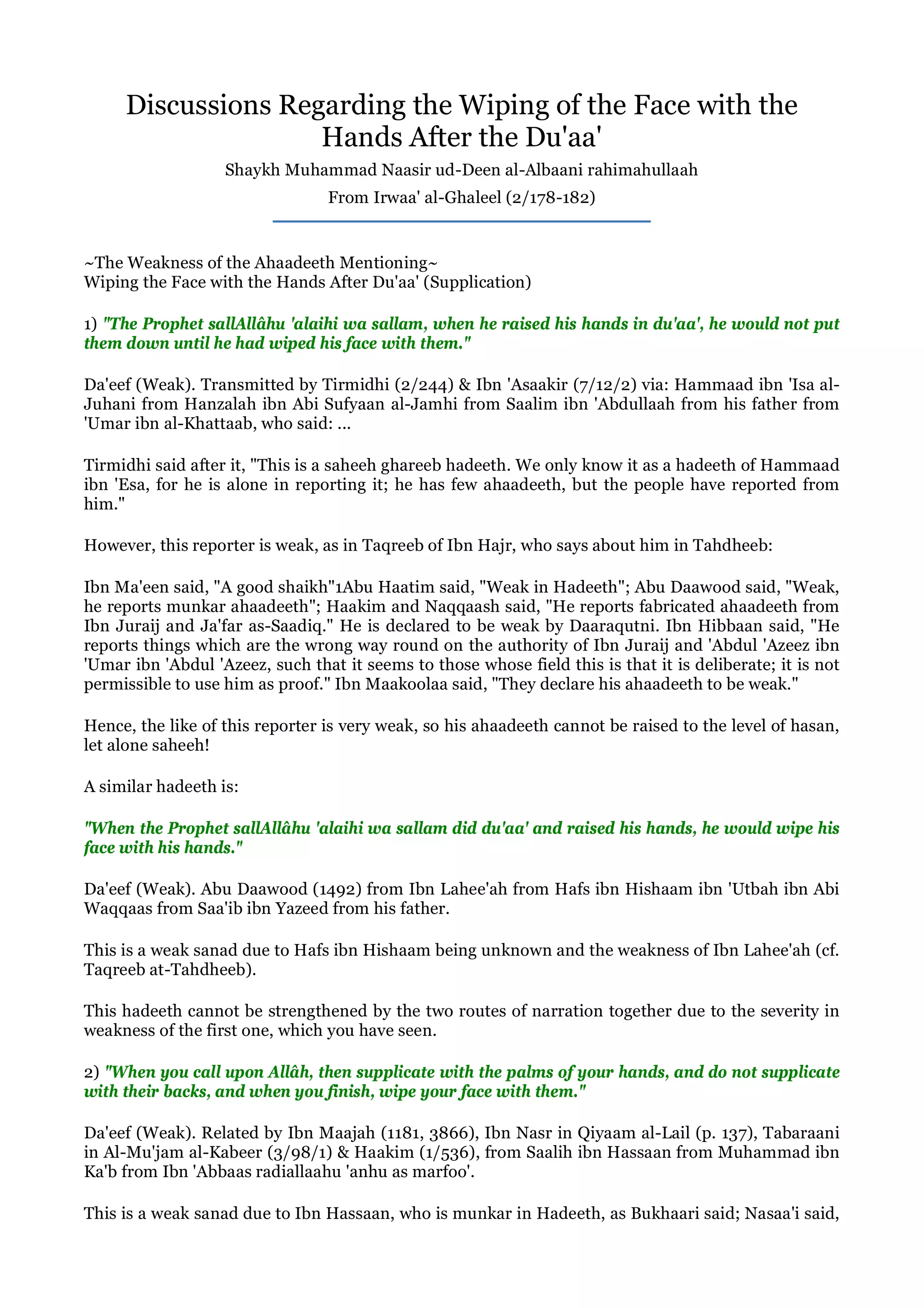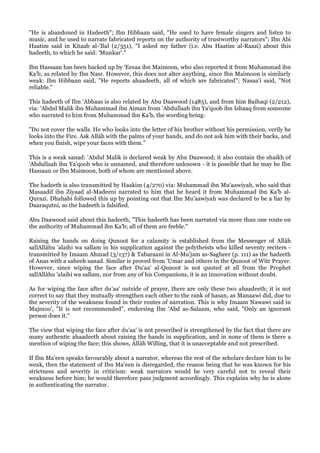The hadiths mentioning wiping the face with hands after du'aa' (supplication) are weak. The chains of narrators contain individuals declared weak by hadith scholars. While raising hands during supplication is established, wiping the face afterwards is not found in authentic narrations of the Prophet or companions. It is therefore an innovation without basis in the sunnah. The view that wiping the face is not prescribed is strengthened by authentic hadiths about supplication not mentioning it.

